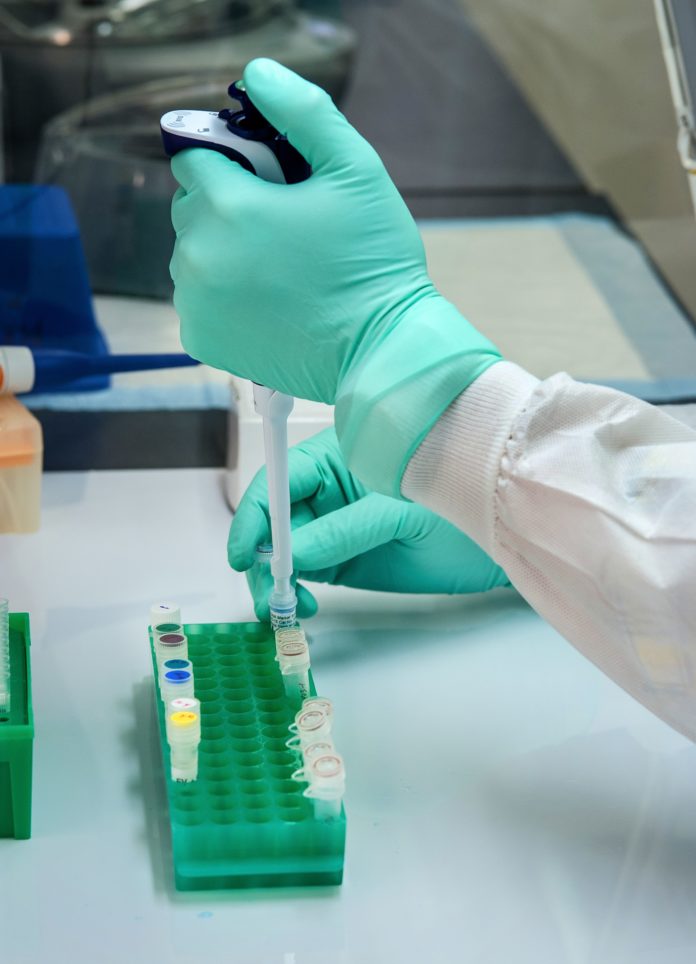Results published in Science Immunology showed that Calquence (acalabrutinib), a Bruton’s tyrosine kinase (BTK) inhibitor, reduced markers of inflammation and improved clinical outcomes of patients with severe Covid-19 disease.
The peer-reviewed case series of 19 hospitalized patients with Covid-19 disease and severe hypoxia or inflammation is a collaboration from investigators across the US, including AstraZeneca scientists, and led by Wyndham Wilson, and Louis Staudt at the National Cancer Institute of the National Institutes of Health in the US.
The publication describes the effects of Calquence administration in patients with severe respiratory illness caused by the SARS-CoV-2 virus. A virus-induced hyperimmune response or “cytokine storm” is hypothesized to be a major pathogenic mechanism of respiratory illness in these patients. Evidence suggests that dysregulated BTK-dependent lung macrophage signaling mediates this cytokine storm and plays a role in Covid-19 pneumonia.
José Baselga, executive vice president, Oncology R&D, said, “The science supporting investigation of the use of Calquence in patients with severe Covid-19 is strong. The encouraging preliminary data in this case series has informed the initiation of global phase II trials, notably the Calavi programme. We look forward to completing recruitment and obtaining data in these trials as soon as possible to further our understanding of what this potential treatment could mean for patients.”
Calquence is a next-generation, selective BTK inhibitor currently approved in the US for treating certain hematological malignancies. Calquence is not now approved in any country to treat patients with illnesses related to SARS-CoV-2.
Calavi
The Calavi program comprises two randomized, open-label, multicenter, global trials evaluating the efficacy and safety of Calquence with best supportive care (BSC) versus BSC alone in patients hospitalized with respiratory complications of Covid-19. These trials evaluate the addition of Calquence to current BSC in patients hospitalized but not on assisted ventilation. These trials are being conducted worldwide: one trial in the US and one trial ex-US, including Europe, Japan and South America. The primary efficacy endpoint measures the number of patients alive and free of respiratory failure following treatment.
Coronavirus disease 2019 (Covid-19) is a new pandemic disease caused by severe acute respiratory syndrome coronavirus 2 (SARS-CoV-2). Most Covid-19 cases (~80%) are mild respiratory illnesses. However, some require hospitalization, mostly due to pneumonia, and can progress quickly to severe acute lung injury and acute respiratory distress syndrome (ARDS), which is associated with high mortality. A viral-induced “cytokine storm” or hyperimmune response is hypothesized to be a major pathogenic mechanism of ARDS in these patients through modulation of pulmonary macrophages and dendritic cells or neutrophils.
Calquence
Calquence is a next-generation, selective inhibitor of Bruton’s tyrosine kinase (BTK). Calquence binds covalently to BTK, thereby inhibiting its activity. In B-cells, BTK signaling results in activation of pathways necessary for B-cell proliferation, trafficking, chemotaxis, and adhesion.
In the US, Australia, the United Arab Emirates, and India, Calquence is approved for treating adult patients with chronic lymphocytic leukaemia (CLL) or small lymphocytic lymphoma (SLL), and in Canada for CLL. Calquence is also approved in the US and a few other countries for adult patients with mantle cell lymphoma (MCL) who have received at least one prior therapy. This indication is approved in the US under accelerated approval based on the overall response rate. Continued approval for this indication may be contingent upon verification and description of clinical benefit in confirmatory trials. Calquence is not currently approved in any country to treat patients with illnesses related to SARS-CoV-2.
BTK Inhibition
In lung macrophages, Bruton’s tyrosine kinase (BTK) regulator of the production of multiple cytokines and chemokines, including TNFa, IL-6, IL-10, and MCP-1, among others.
BTK inhibition reduces the production of these cytokines and is, therefore, a promising strategy to reduce the respiratory complications of Covid-19.
There is evidence that dysregulated BTK-dependent macrophage signaling may be central to the exaggerated inflammatory responses to SARS-COV-2 and play a role in COVID-19 pneumonia and acute respiratory distress syndrome (ARDS). 3-6 In macrophages, TLR3, TLR7 and TLR8 can recognize single-strand RNA from viruses such as SARS-COV-2 and initiate signaling through BTK-dependent activation of NF-kB and IRF3, triggering the production of multiple inflammatory cytokines and chemokines. 4-7 In support of BTK inhibition, therapeutic inhibition of BTK in patients with lymphoid malignancies results in decreased proinflammatory cytokines and chemokines. Similar findings have been observed in mouse influenza models, where BTK inhibition decreased these inflammatory mediators and rescued mice from lethal acute lung injury.








